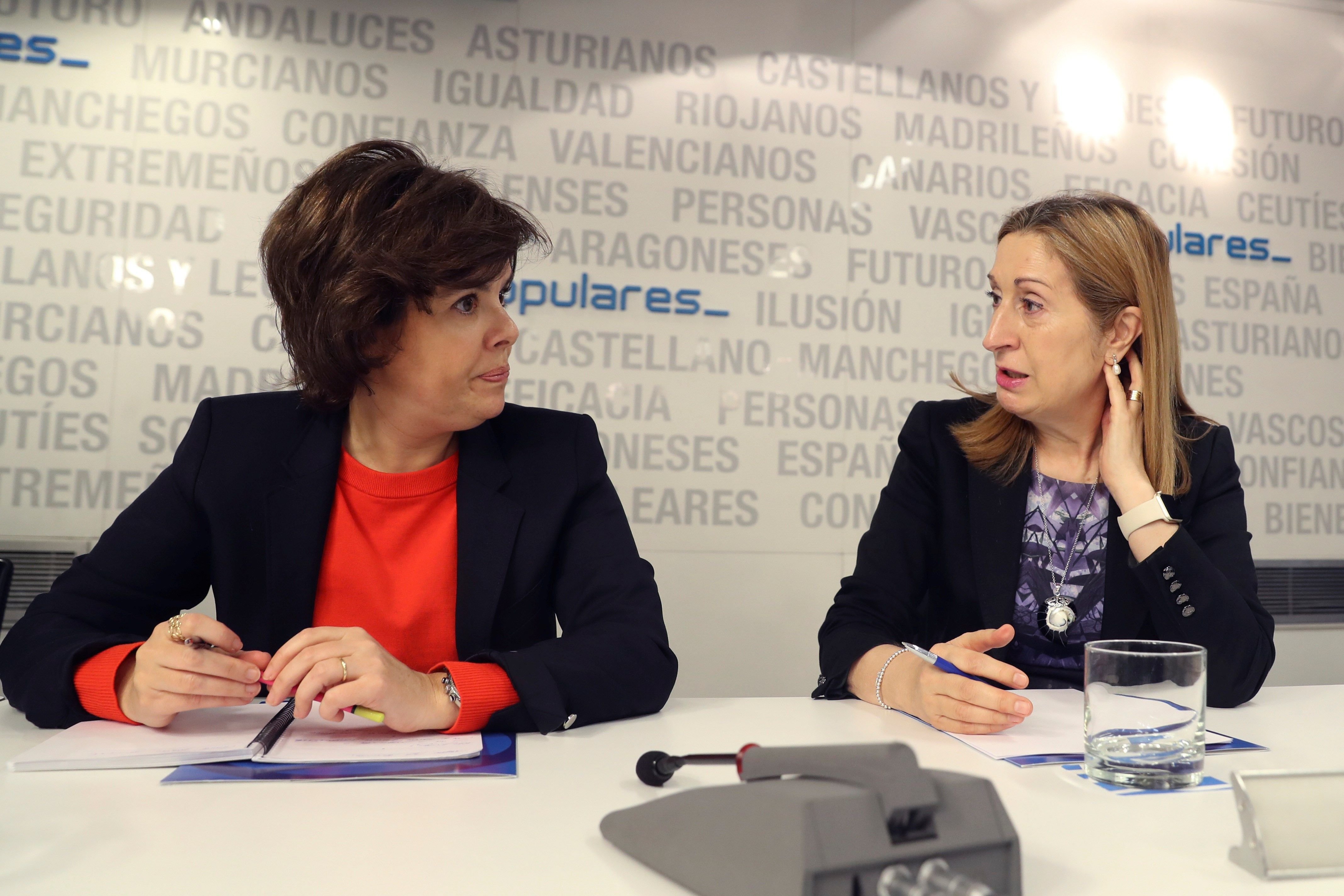"It's not time to talk about that now", complained a senior PP figure when asked whether there would be a leadership battle in the party in the coming months and, if so, who would be involved. Mariano Rajoy had announced his resignation as president of the party minutes earlier to accelerate party renovation with an express congress in July, the idea being to rearm the party ahead of next year's regional and municipal elections. Unlike his predecessor, José María Aznar, Rajoy is leaving without appointing a successor, promising to "be at the orders, I repeat, at the orders" of whoever is chosen. In other words, absolute loyalty to the new PP dauphin. However, sources close to the leader say he will interfere "the minimum possible", only to guarantee his succession will not turn into a civil war between the contenders.
The first challenger is Alberto Núñez Feijóo (born 1961 in Ourense, Galicia), current president of Galicia. According to party sources, Feijóo was particularly moved when it was his turn to speak during this Tuesday's national leadership committee meeting to bid farewell to the leader. He's the contender from the autonomous communities with the greatest chance of getting the support needed after Cristina Cifuentes, president of Madrid, resigned earlier this year besieged by scandal. The 56-year-old civil servant, with a long career in the institutions, has never put himself forward directly, but has often been mentioned as a figure capable of competing with the regenerative zeal of Ciudadanos and Albert Rivera. Doubts arose, however, during an interview with the journalist Jordi Évole on Salvados, when he had difficulties explaining a photograph of himself with a Galician drug trafficker on a yacht. Feijóo said he didn't know who the other person was, despite them appearing frequently in the press.
Another strong contender is Rajoy's deputy prime minister, Soraya Sáenz de Santamaría (born in 1971 in Valladolid, Castile and León). Second in her cohort of state lawyers, one of the most difficult exams to enter public service, 46-year-old Santamaria has been Rajoy's right hand for more than 10 years. In her favour, she has her public profile forged during her time as government spokesperson, almost 5 years, the positive ratings she has in surveys, the negotiating ability parties like EAJ credit her with and the possibility that she would represent continuity politically, namely the rejection of Aznar's more liberal wing. Against her, she has archenemies like former foreign minister, José Manuel García Margallo, with rumours suggesting she was the author of his end as a minister. Margallo himself said just days ago he would do "everything possible" to stop her becoming the party's spokesperson in the Congress.
Finally, defence minister and PP's secretary general, María Dolores de Cospedal (born in 1965 in Madrid). Also a state lawyer, Cospedal has been Rajoy's main right-hand at the head of the party through the long years of different controversies, like the Gürtel trial. Entrusted with doing the party's roll call and its dirty work, like getting rid of Cifuentes, Cospedal has shown her political worth at the defence ministry when, after a commission into the accident, she apologised for the 2003 Yak-42 crash. However, her public profile has been lower than Santamaría's, and there's often been said to be a deep rivalry between them, leading to frosty images on 2nd May this year. For this reason there is speculation that Cospedal could be putting efforts into torpedoing the former deputy PM's chances of taking power.

